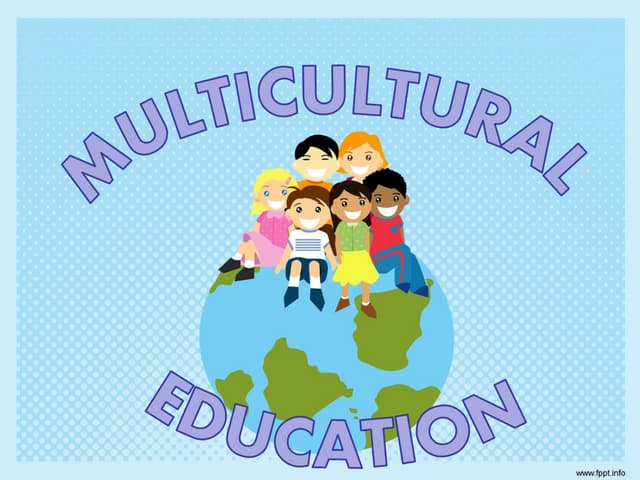Multiculturalism and Its Impact on Education
May 31, 2023
This paper discusses the implications of multiculturalism on education and how it affects today's classrooms. Multiculturalism is a term used to describe the presence of different cultures, ethnicities, religions, genders, and backgrounds in one social context or environment. It has been argued that multiculturalism can have both positive and negative impacts on education.
On the one hand, proponents suggest that when students learn from diverse backgrounds and perspectives they become more open-minded which leads to better understanding of cultural differences and higher levels of empathy among peers. Additionally, by learning about different cultures in school children can gain an appreciation for diversity which helps foster a more inclusive classroom culture. This creates a sense of respect for all students regardless of their background.

On the other hand, there are concerns over how multiculturalism can lead to cultural clashes in the classroom. This is especially true if teachers and schools do not provide adequate support for students or teachers from different backgrounds. It is possible that, without proper guidance, differences among cultures could lead to prejudice or discrimination against certain groups. Moreover, some fear that learning about other cultures may cause children to neglect their own culture or heritage as they strive to assimilate into the larger mainstream culture.
Ultimately, while multiculturalism has its advantages and disadvantages, it is important for educators and schools to continue exploring ways to make sure diversity is embraced in a positive way. Educators need to ensure students from different backgrounds are given equal opportunities in school and work towards creating an inclusive environment where all cultures are respected. Furthermore, teachers should use multiculturalism as a way to promote collaboration among students and bridge cultural divides. In this way, schools can create an environment where diversity is valued and celebrated.
In conclusion, the implications of multiculturalism on education are far reaching and have both positive and negative aspects. However, with proper guidance and support from school systems it is possible to create a classroom culture that embraces diversity in a respectful manner. This would benefit all students by allowing them to learn about different cultures as well as developing empathy for their peers regardless of their background or identity.
The ideal outcome of these efforts would be that children grow up understanding what it means to have respect for others even when they come from different backgrounds. This would lead to a more tolerant and inclusive society in which everyone can share their culture and beliefs in a safe, open environment. In sum, multiculturalism has the potential to provide great benefit for our education system if handled in the right way.
